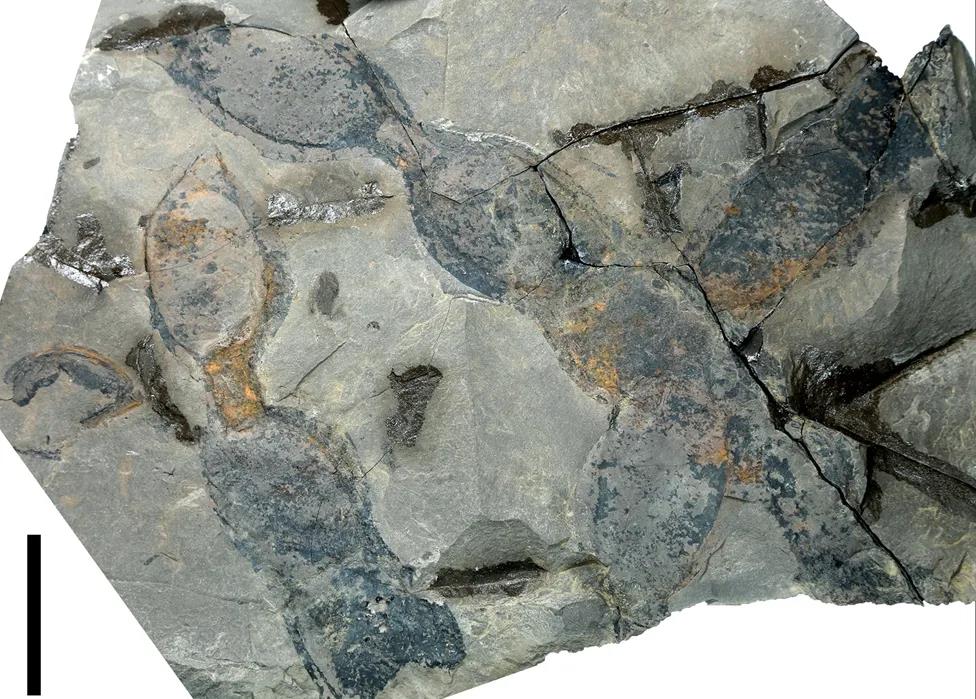KUNMING, Jan. 13 (Xinhua) -- Chinese and Vietnamese researchers have discovered Mucuna fossil pods dating back approximately 10 million years in northern Vietnam, according to a recent research article published in the Review of Palaeobotany and Palynology.
Mucuna is a pantropical genus with approximately 105 extant species of climbing lianas and shrubs in the legume family, the third-largest family of flowering plants. It is widely distributed in pantropical areas, with its center of diversity located in Asia.
Researchers from the Xishuangbanna Tropical Botanical Garden of the Chinese Academy of Sciences and the Vietnam Academy of Science and Technology presented the fossil pods at a length of more than 30 centimeters.
The fossil specimen is characterized by linear-oblong, compressed, torulose and slightly curved pods containing at least three to five seeds, a pair of thickened marginal wings, and an apex with a cone-shaped beak, the study reported.
The discovery supports the existing hypothesis that the Mucuna genus originated in Asia, and implies that the genus has been presented and has adapted to the humid tropical rainforests in northern Vietnam since at least the late Miocene. URL: http://www.xinhuanet.com/asiapacific/20220113/cdcca8d3c3e6499ea847187c6384c981/c.html 
First pod record of Mucuna (Papilionoideae, Fabaceae) from the late Miocene of the Yen Bai Basin, northern Vietnam (Image by Hung Ba Nguyen) |

